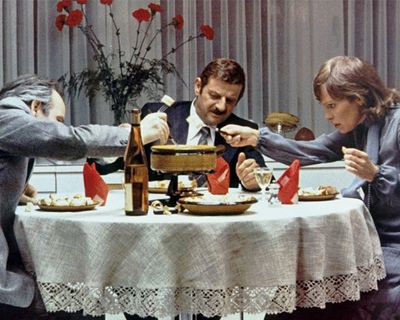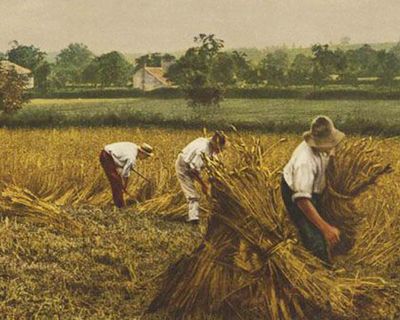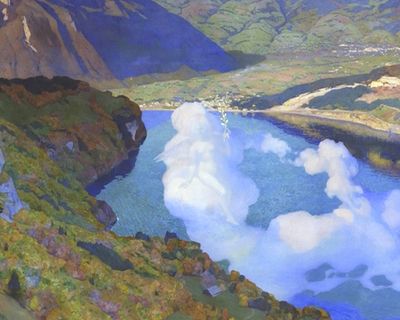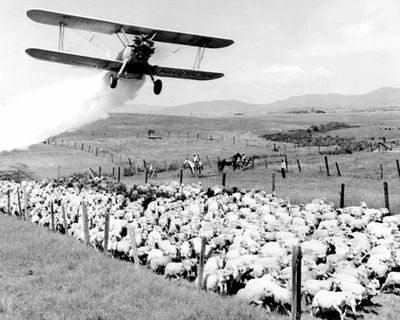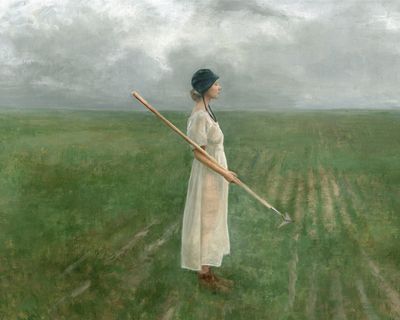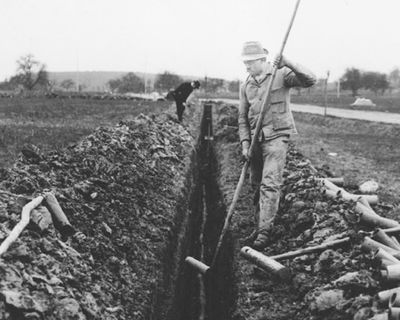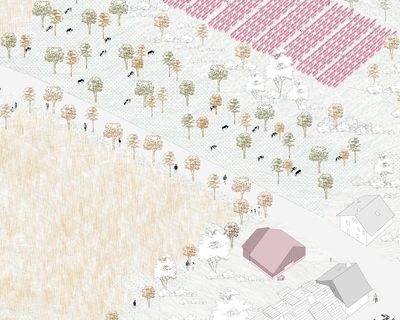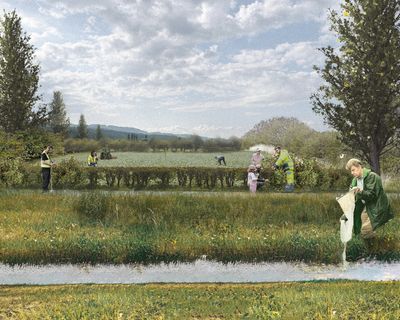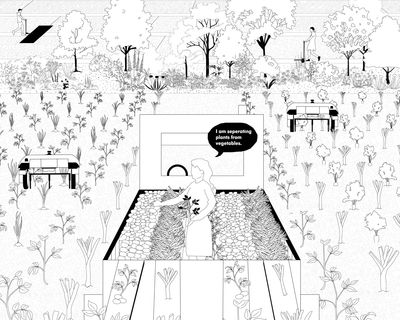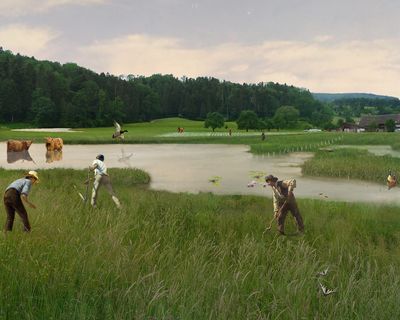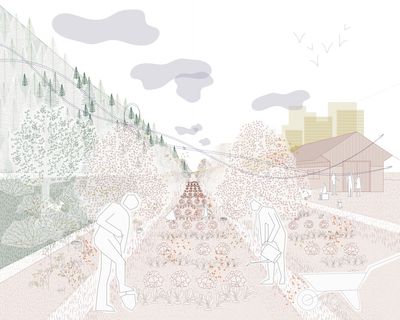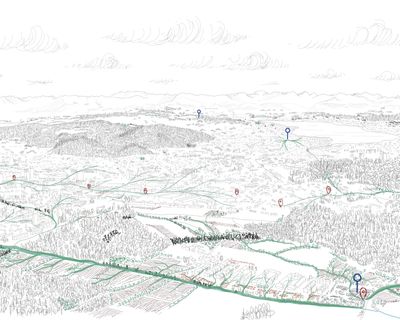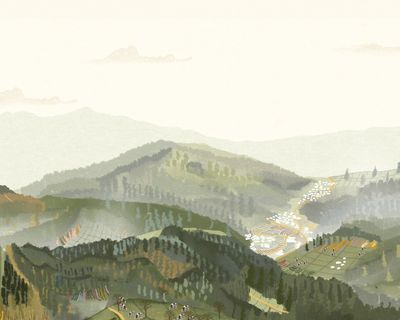The Fabric of AgroecologyA Vision for the Territory of Zurich
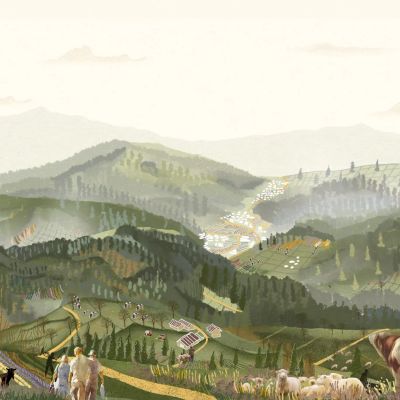
This studio proposes an approach in which agricultural territories comprise one intermeshing, living and exchanging whole. Shifting away from anthropocentric frameworks, we will consider agricultural territories as cultivated and cared-for agroecosystems in which non-humans, humans and the environment interact in multiple ways. The studio aims to research and outline potentials and projects for an agroecological fabric extending across the metropolitan region of Zurich. The aim is also to contribute to an urgent transdisciplinary and political debate on the transformation of landscapes of food cultivation and their relationships to cities.
Agroecology extends an indispensable ecological approach to agriculture, allowing a living, biosystem to become legible within the fabric of the built and unbuilt environments. Economic, political and governance aspects of agriculture are also integral to agroecological thinking. Agroecology offers a holistic approach seeking to harmonise farming and other activities with natural processes. As an approach to farming, agroecology is as old as agriculture itself: many indigenous cultures such as the Maori and Nahuatl applied what we would now consider agroecological knowledge. Within science, agronomy and ecology began to merge before WWII in order to understand where best to grow food. From the 1970s onwards, farmer’s social movements fighting to achieve food sovereignty and resisting global agriculture developments associated with the Green Revolution adopted agroecology. The UN Environmental Programme and the UN Food and Agriculture Organisation support and promote agroecology as a means to achieve 12 of the 17 UN Sustainable Development Goals. Among them, “zero hunger” and food security will have to be tackled under unpredictable climatic conditions, extreme weather events and seasonal variations.
How can design professionals assist the empowerment of farmers and agricultural communities in strengthening the web of life in landscapes of food production? How can we build resilience together in territories capable of mitigating and adapting to climate change? Studio investigations take concrete agroecological practices in the region of Zurich as the starting point, carefully selected for their pioneering approaches. They are currently operating on a small scale and in a stand-alone fashion, but they can help open up the discussion about how to advance and multiply beneficial and exemplary practices across different contexts. During the research and design process, we will also confront pivotal scientific and political debates around the need for a transformational change in the global food system.
New Ecologies
New Ecologies is a studio series at the Architecture of Territory Chair dedicated to ecologising architecture. Ecological thinking foregrounds the interactions between organisms, between objects, or social-technical systems and their environments. It is applied in relation to design practice and its social and environmental effects. The MAS in Urban and Territorial Design creates a transdisciplinary environment through the interaction of Urban Theory Sessions and Interdisciplinary Courses directly linked to the Core Research and Design Studio. Citizens, experts, and fellow designers and artists will accompany us in the process.
Representing Landscape and Positions
The project work develops in the form of a web-based investigative reportage. In the field, participants work through interviews, sketches, video and field notes. Back in the studio, experts in GIS, web design, architectural writing and videography support the process. Cartography is fundamental for both analytical and projective approaches to territory: GIS-based geospatial modelling will be applied on the project site to construct novel interpretative and critical landscape representations. Film and photography capture polysemic dimensions of territory, its social, material and more-than-human manifestations. An introduction to visual ethnography and visual anthropology will form an important element of the course. The investigative reportages and visions will be presented online and in the public forum meant to inform design practises and public discourse.
Trailing Pioneers
Mobile and multisited ethnographies, interviews, oral histories, participant observation, visual study and archival work are indispensable to building a body of original research and to gradually formulating the research and design hypotheses in the studio. The fieldwork is generally conducted after the semester’s three-week overture period. It encompasses group and individual visits to project sites, meetings with inhabitants, community organizations and municipal offices.
